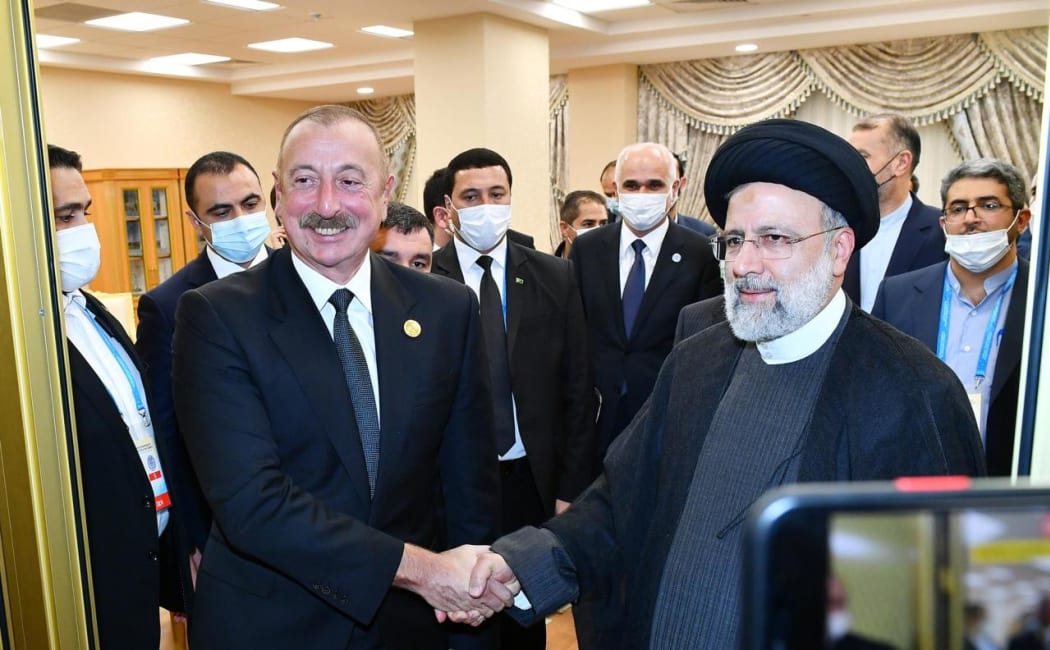Iran Strongly Opposes US-Backed ‘Trump Route’ Transit Corridor in the Caucasus

Tehran, Iran — Iran has firmly voiced its opposition to a newly announced transit corridor planned under a United States-brokered peace agreement between Azerbaijan and Armenia, warning that the project poses a direct threat to regional stability and its own national security.
The deal, finalized on August 8, 2025, in Washington D.C., was personally overseen by US President Donald Trump during a high-profile signing ceremony with Azerbaijani President Ilham Aliyev and Armenian Prime Minister Nikol Pashinyan. While many international observers praised the accord as a step toward lasting peace in the South Caucasus, Iran has rejected one of its central provisions — a proposed transport route called the Trump Route for International Peace and Prosperity (TRIPP).
Iran’s Firm Rejection of the Corridor
Ali Akbar Velayati, senior adviser to Iran’s Supreme Leader, delivered an unequivocal message on Saturday: Tehran will prevent the establishment of the TRIPP corridor “with or without Russia’s cooperation.” Iran, which maintains close ties with both Armenia and Russia, sees the project as a geopolitical maneuver that could undermine the balance of power in the region.
Speaking to the state-affiliated Tasnim News Agency, Velayati accused Washington of attempting to treat the Caucasus “like a piece of real estate to be leased for 99 years.” He described the proposed transit route as “political treachery” and warned that instead of becoming a passageway for prosperity, it would serve as “a graveyard for Trump’s mercenaries.”
Details of the TRIPP Corridor
The agreement grants the United States exclusive development rights to a transport link running through Armenian territory, connecting Azerbaijan to the Nakhchivan exclave — an area bordering Turkiye. The planned corridor would operate under Armenian law but carry the “Trump Route” branding, symbolizing Washington’s direct involvement.
Its location, near the Iranian border, has raised alarm in Tehran. Iranian officials argue that it would give NATO a strategic foothold “like a viper” between Iran and Russia, potentially altering the security dynamics of the entire region.
Iran’s Broader Concerns About Foreign Involvement
In a separate statement, Iran’s Ministry of Foreign Affairs reiterated that while Tehran supports peace between Armenia and Azerbaijan, it firmly opposes any infrastructure project near its borders that is developed “without respect for sovereignty and territorial integrity.” The ministry stressed that foreign intervention in sensitive border areas could lead to “negative and irreversible consequences.”
Russia and Turkiye Respond
Moscow offered a cautious endorsement of the peace accord, stating that it supports initiatives that promote stability in the South Caucasus. However, the Russian Ministry of Foreign Affairs also emphasized that solutions should come from regional actors rather than external powers, warning against repeating the “failed experiences” of Western-led interventions in the Middle East.
Turkiye, in contrast, welcomed the proposed TRIPP corridor. President Recep Tayyip Erdogan, in talks with Azerbaijani President Aliyev, expressed hope that the route would strengthen trade flows across Eurasia. Turkish Foreign Minister Hakan Fidan called it a “very beneficial development” that could link Europe to deep parts of Asia through Turkiye.
Historical Context of Armenia-Azerbaijan Disputes
The backdrop to this development lies in decades of conflict between Armenia and Azerbaijan over Nagorno-Karabakh. This disputed region, predominantly populated by ethnic Armenians in the late 1980s, declared independence from Azerbaijan with Armenia’s support, sparking a series of wars and skirmishes.
In recent years, both sides have moved toward reconciliation. In 2024, Armenia agreed to return several villages to Azerbaijan, an event Baku described as “long overdue.” Analysts say the latest US-brokered deal serves as a roadmap toward a final peace settlement, with remaining disputes resolved through diplomacy.
Analyst Perspectives
Ahmad Shahidov of the Azerbaijan Institute for Democracy and Human Rights believes a final peace declaration could be signed within weeks. He noted that the absence of unresolved territorial disputes makes the timing favorable for a comprehensive agreement.
However, Iran’s rejection of the TRIPP corridor introduces a new layer of complexity. Regional experts warn that any escalation between Tehran and Washington over this project could stall the peace process and deepen fault lines in the South Caucasus.
Geopolitical Stakes Moving Forward
The planned corridor is more than an infrastructure project — it represents a strategic battleground for influence in a region where Russia, Iran, Turkiye, and the United States all hold significant interests. For Washington, the TRIPP route could serve as an economic and political bridge between Europe and Asia. For Tehran and Moscow, it risks becoming an outpost for NATO operations.
As of now, the Trump administration remains committed to pushing the project forward, while Iran has vowed to use “all necessary means” to prevent it from materializing. The coming months will likely determine whether the TRIPP corridor becomes a reality or remains an ambitious but controversial vision.
Keywords: Iran news, Armenia-Azerbaijan peace deal, Trump Route corridor, TRIPP project, Caucasus geopolitics, US foreign policy, Iran-Russia relations, Turkiye-Azerbaijan trade, NATO in Caucasus
